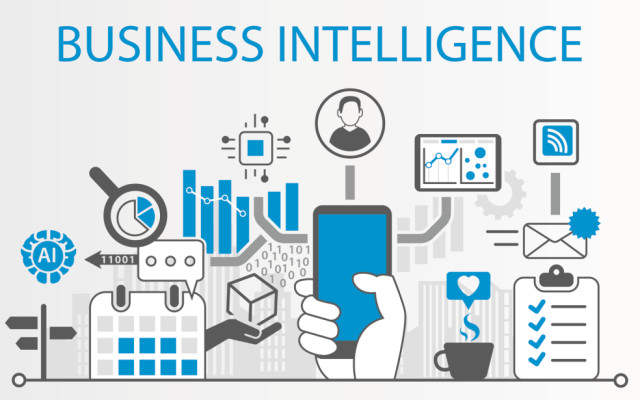Business intelligence (BI) leverages software and services to transform data into actionable insights that inform an organization’s strategic and tactical business decisions. BI tools access and analyze data sets and present analytical findings in reports, summaries, dashboards, graphs, charts and maps to provide users with detailed intelligence about the state of the business.

Business intelligence are systems that combine:
- Data gathering
- Data storage
- Knowledge management
with analysis to evaluate complex corporate and competitive information for presentation to planners and decision maker, with the objective of improving the timeliness and the quality of the input to the decision process.
The most effective BI systems currently on the market are:
- Power BI – business analytics software by Microsoft, which provides interactive visualizations and business intelligence capabilities with an interface simple enough for end users to create their own reports and dashboards.
- Tableau – an integrated business intelligence and analytics solution that helps to analyze key business data and generate meaningful insights. The solution helps businesses to collect data from multiple source points such as SQL databases, spreadsheets, cloud apps like Google Analytics and Salesforce to create a collective dataset.
- Qlik Sense – a business and visual analytics platform that supports a range of analytic use cases. Built on Qlik’s unique Associative Engine, it supports a full range of users and use-cases across the life-cycle from data to insight
There is an increasing interest in Software-as-a-Service (SaaS) business intelligence over the past years.